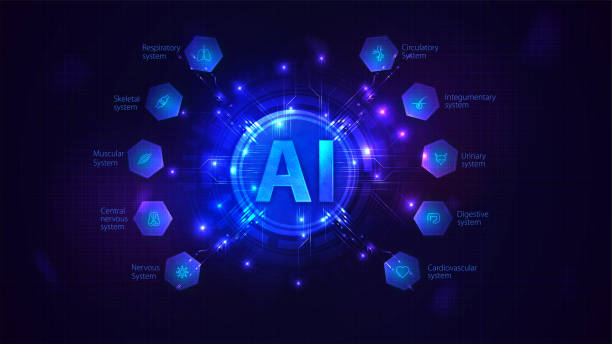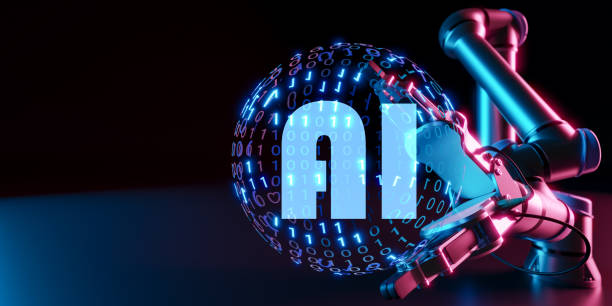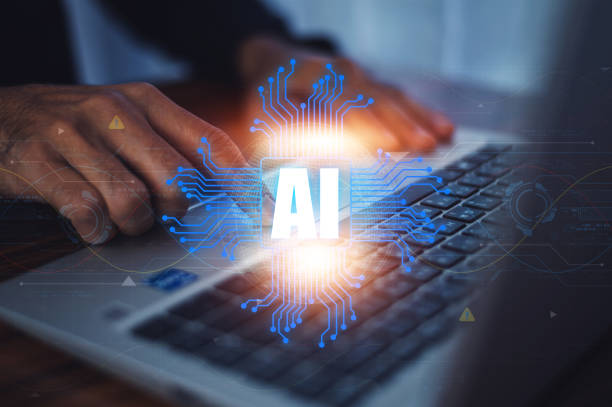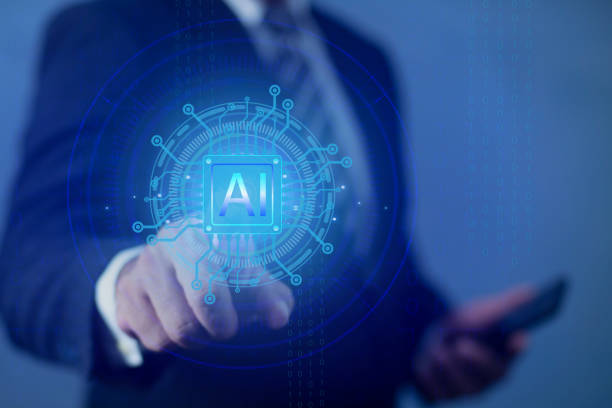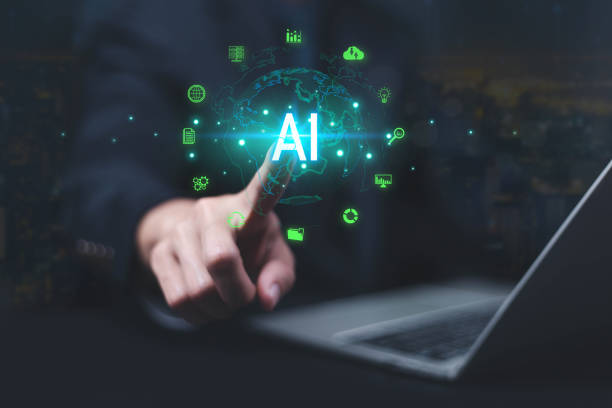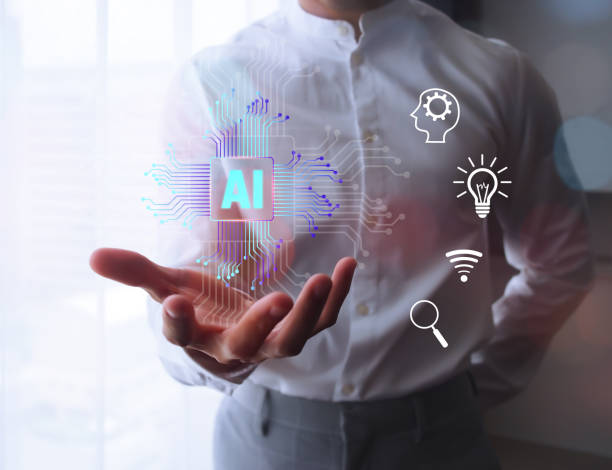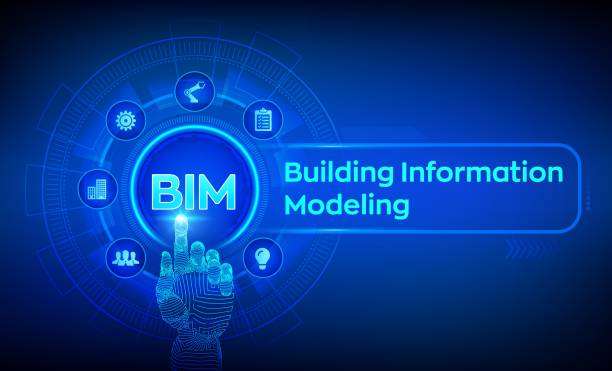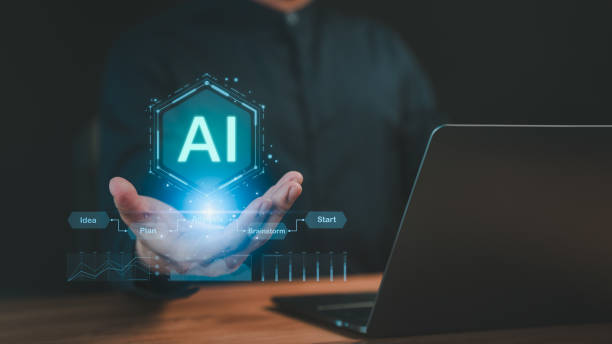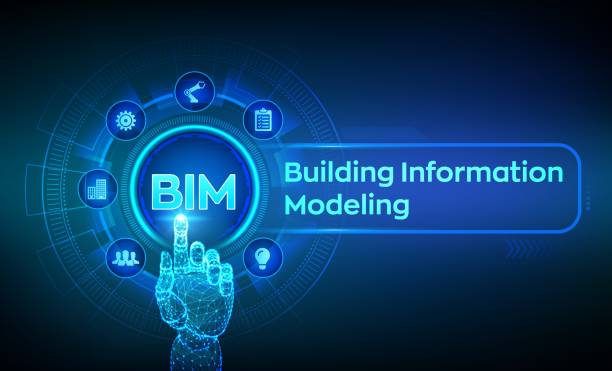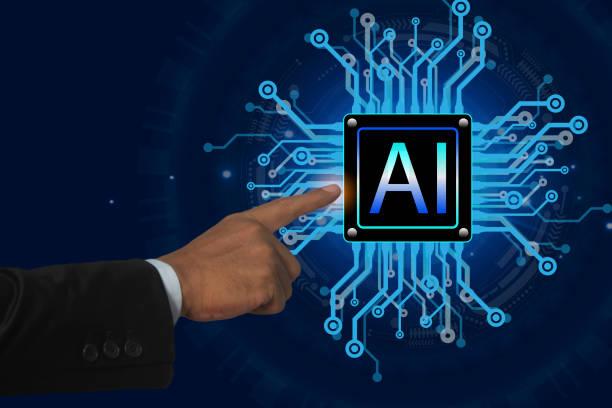Introduction to the Future of AI Careers: Fundamental Transformations
In today’s rapidly advancing world, #Artificial_Intelligence (#AI) stands as one of the most powerful driving forces, transforming various industries and revolutionizing the #Future_of_AI_Careers.
This technology is not merely a tool for optimizing and automating processes; it also holds the potential to create entirely new jobs and change the nature of existing ones.
Understanding these transformations is crucial for individuals, organizations, and governments to adapt to this massive wave.
Global reports indicate that by 2030, millions of jobs will be affected by AI, with some being eliminated and others being reshaped. These changes are not limited to manual or repetitive jobs but extend to intellectual and creative fields as well.
With the integration of AI into sectors such as #Healthcare, #Education, #Finance, and #Entertainment, the need for new skills and a different approach to work is more keenly felt than ever.
This is a historical period where our definition of “work” and “employment” is being redefined.
For more information about Artificial Intelligence, you can refer to Wikipedia.
Are you tired of your company’s website failing to meet your expectations? With Rasawb, design a professional website that truly represents your business.
✅ Increase acquisition of new customers and sales leads
✅ Enhance your brand’s credibility and trust among your audience
⚡ Get a free website design consultation!
Jobs at Risk and New Opportunities in the Shadow of AI
The future evolution of jobs with AI reveals two sides of the same coin: on one hand, many jobs requiring repetitive, predictable, or big-data-driven tasks face the risk of automation by AI.
This includes jobs in manufacturing, customer service, accounting, and even some aspects of legal and medical fields.
AI can perform tasks with much higher accuracy and speed, leading to increased productivity but reduced demand for human labor in those areas. On the other hand, the emergence of AI brings unprecedented job opportunities.
Roles such as machine learning engineer, data scientist, AI ethicist, UX designer for intelligent systems, and AI cybersecurity analyst are experiencing significant growth and development.
These jobs not only require advanced technical skills but also soft skills like critical thinking, problem-solving, creativity, and emotional intelligence.
Indeed, future career paths in the age of AI are shifting towards roles that complement AI’s capabilities, rather than competing with them.
The World Economic Forum’s report on the Future of Jobs provides a comprehensive overview in this regard.
Essential Skills for the Future of AI Careers: Education and Adaptation
To succeed in the AI-driven job landscape, acquiring new skills and continuously updating knowledge is vital.
These skills can be divided into two main categories: hard (technical) skills and soft (human) skills.
In the hard skills category, familiarity with programming (especially Python), understanding the principles of machine learning and deep learning, big data analysis, and cybersecurity knowledge are of high importance. Additionally, understanding how AI algorithms work and the ability to work with related tools are also essential.
But perhaps more important than hard skills are soft skills, which AI cannot fully replicate.
These skills include critical thinking, creative problem-solving, adaptability and flexibility, emotional intelligence, effective communication, and teamwork.
These skills help humans play more strategic and innovative roles alongside AI.
McKinsey’s articles on the future of work highlight the importance of these skills.
Below is a table of the most important skills required for success in the future of AI careers:
| Skill Category | Skill Examples | Importance Description |
|---|---|---|
| Technical Skills (Hard) | Programming (Python, R), Machine Learning, Data Analysis, Prompt Engineering | Ability to directly work with and develop AI technologies. |
| Soft Skills (Human) | Critical Thinking, Problem Solving, Creativity, Emotional Intelligence, Effective Communication | Unique human abilities that AI cannot fully replace. |
| Interdisciplinary Skills | AI Ethics, User Experience (UX) Design for AI, Agile Project Management | Combining technical knowledge with human and managerial understanding for successful AI project implementation. |
The Role of Education and Reskilling in Shaping the Future of AI Careers
Understanding and preparing for the job transformations caused by AI requires fundamental changes in educational systems and retraining programs.
Education at all levels, from primary school to university, must adopt a new approach that emphasizes the cultivation of critical thinking, problem-solving, creativity, and digital literacy skills.
Simply memorizing information is no longer sufficient; the ability to analyze, synthesize, and apply knowledge in the real world becomes paramount. Reskilling and Upskilling programs for the current workforce are also of paramount importance.
Governments, organizations, and companies must invest in this area so that workers can acquire new skills and adapt to changing jobs.
This can include online courses, bootcamps, specialized apprenticeships, and in-house training.
For example, workers whose repetitive tasks are performed by AI can find new roles by training in areas related to AI system maintenance, data analysis, or technical support.
This proactive approach to reskilling is key to retaining the workforce and ensuring the future of AI careers for many individuals.
UNESCO also emphasizes the importance of transforming education for the digital age.
Did you know that your company’s website is the first point of contact for 75% of potential customers?
Your website is the face of your brand. With **Rasawb** corporate website design services, build an online presence that earns customer trust.
✅ Create a professional and lasting brand image
✅ Attract targeted customers and increase online credibility
⚡ Get a free consultation from **Rasawb** experts!
Ethical and Social Considerations in Future Job Transformations with AI
The future of the workforce under AI is not limited to technical and economic dimensions; it also raises deep ethical and social challenges.
One of the most significant concerns is the issue of inequality. If access to education and retraining opportunities is not fair, the gap between those who can work with AI and those who cannot will widen, exacerbating social and economic inequalities.
Additionally, questions arise regarding data privacy, algorithmic biases, and AI accountability.
How can we ensure that AI systems make fair decisions and do not discriminate? Who will be responsible for potential AI errors? These are issues that require deep philosophical, legal, and social discussions and ultimately must lead to responsible policymaking.
On the other hand, AI can help humans perform dangerous or difficult tasks and improve the quality of life, but it must be ensured that these advancements do not come at the cost of losing human dignity or control over individuals’ lives.
Addressing this challenging content is essential for the sustainable and ethical development of AI.
AI ethics is a broad topic also covered on Wikipedia.
Click here to preview your posts with PRO themes ››
Impact of AI on Various Industries: A Specialized Look
AI is transforming many industries in specialized and profound ways, directly impacting the future of AI careers.
In the medical sector, AI plays a role in disease diagnosis, drug discovery, and even precise surgeries.
This requires specialists who, in addition to medical knowledge, have the ability to work with large medical datasets and intelligent systems.
In the financial sector, AI algorithms are used in financial market analysis, risk prediction, and fraud detection, increasing the demand for financial analysts with AI expertise.
In the manufacturing industry, robotics and AI are effective in automating production lines, improving quality, and optimizing supply chains.
These changes mean a reduced need for repetitive manual labor and an increased demand for robotics engineers, automation specialists, and production data analysts.
Even in creative industries such as graphic design, music, and writing, AI tools can act as assistants and accelerate creative processes.
This creates a need for artists with a technical perspective and the ability to use these tools.
In every industry, specialization alongside AI knowledge brings new value creation.
IBM also has numerous articles on the impact of AI on various industries.
Entrepreneurship and Creation of New Job Opportunities in AI
The future of AI careers is not limited to the modification and evolution of existing jobs but also provides an unparalleled platform for entrepreneurship and the creation of new job opportunities in the field of AI.
With recent advancements in AI, many startups are emerging that offer innovative solutions in various fields.
This includes the development of AI tools for small and medium-sized businesses, process automation platforms, intelligent personal assistants, and advanced data analysis systems.
Entrepreneurs can identify unmet market needs and, by leveraging AI capabilities, offer products and services that previously seemed impossible. This trend not only leads to direct job creation within these startups but also indirectly contributes to economic growth and employment by creating new markets and increasing productivity.
For example, companies developing advanced chatbots for customer service or AI for smart agriculture are examples of such successful entrepreneurial ventures.
This section can be very entertaining and inspiring, as it shows how human creativity combined with technology leads to value creation.
Harvard Business Review has also published articles on how AI is changing the nature of entrepreneurship.
Click here to preview your posts with PRO themes ››
The table below shows some emerging areas of entrepreneurship focused on AI:
| Entrepreneurship Area | AI Application Examples | Key Benefits |
|---|---|---|
| Smart Agriculture (AgriTech AI) | Automated irrigation systems, plant disease detection, crop management | Increased productivity, reduced resource consumption, environmental sustainability. |
| Digital Health and Telemedicine (Telehealth AI) | Early diagnosis, personalized treatment plans, virtual medical assistants | Easier access to healthcare services, more accurate diagnosis, reduced costs. |
| Smart Education (EdTech AI) | Adaptive learning platforms, intelligent tutoring, automated assessment | Personalized education, increased student engagement, improved learning outcomes. |
| Financial Services (FinTech AI) | Robo-advisory, fraud detection, intelligent credit scoring | Increased security, high accuracy, widespread access to financial services. |
Government Policies and Global Trends in Shaping the Future of AI Careers
Governments worldwide play a crucial role in guiding and shaping the future job horizons in the world of AI.
This role includes formulating supportive policies for AI research and development, investing in digital infrastructure, and designing national programs for workforce retraining.
Many countries are developing national AI strategies aimed not only at technological advancement but also at ensuring society’s readiness for the transformations it brings.
These policies may include allocating budgets for AI skills training, creating financial incentives for companies to invest in responsible automation, and enacting laws related to data privacy and AI ethics. Furthermore, international cooperation in this field is very important, as AI is a global phenomenon and its impacts transcend borders.
Exchanging knowledge and best practices among countries can help create comprehensive and effective approaches to managing job changes.
News regarding these policies and global trends is constantly being published, demonstrating governments’ commitment to adapting to the AI era.
The European Union’s strategy on AI is an example of these measures.
Did you know that 85% of customers check your company’s website before any interaction?
With Rasawb, build a corporate website that reflects your credibility.
✅ Enhance brand credibility and customer trust
✅ Attract high-quality leads
⚡ Get a free website design consultation
The Human Element in the World of AI-Driven Jobs
Despite significant advancements in artificial intelligence, the human element will continue to play a central role in the transformation and evolution of jobs with the advent of AI.
AI can perform analytical, computational, and repetitive tasks with unparalleled efficiency, but understanding human nuances, empathy, pure creativity, and complex strategic thinking still remain within the human domain.
Jobs requiring strong human interaction, innovation, leadership, and non-routine problem-solving skills are less likely to be fully automated. For example, psychologists, teachers, artists, researchers, and senior managers will continue to be in demand due to the need for human judgment and the ability to establish deep connections.
In fact, AI can act as a powerful tool to augment human capabilities, not replace them.
This analytical approach shows that the future of AI careers is not a competition, but rather a collaboration between humans and machines, where each side leverages its unique strengths.
Developing skills where AI is weak, such as emotional intelligence and creativity, is crucial for maintaining competitiveness in the future job market.
The importance of emotional intelligence is also explained on Wikipedia.
Future Outlook and Adaptation to AI in the Workplace
The future of AI careers is not merely an abstract concept but a reality that is rapidly approaching.
Adapting to these transformations requires a multifaceted approach that includes continuous education, developing AI-complementary skills, and adopting a flexible and change-ready mindset.
Individuals should actively seek new learning opportunities, whether through formal courses or through self-study and experience.
Companies must also invest in reskilling and upskilling their employees and steer their organizational culture towards innovation and the adoption of new technologies.
Most importantly, we must change our perspective on AI: not fear it as a competitor, but embrace it as a powerful colleague and a tool for improving productivity and creativity. This collaboration between humans and AI will not only help preserve jobs but also lead to the creation of jobs that are more complex, satisfying, and valuable.
Preparing for this future is a shared responsibility for individuals, businesses, and governments to ensure that society benefits fully from AI and its challenges are minimized.
Click here to preview your posts with PRO themes ››
Frequently Asked Questions
| Question | Answer |
|---|---|
| How will AI impact the future job market? | AI will automate repetitive tasks, but at the same time, it will create new and more complex jobs in areas such as the development, maintenance, and training of AI systems. |
| Which jobs are most at risk of being replaced by AI? | Jobs involving repetitive, rule-based tasks with low requirements for creativity or emotional intelligence, such as some manufacturing, data entry, and simple customer service roles, are most at risk. |
| What skills are essential for success in future careers with AI? | Skills such as critical thinking, complex problem-solving, creativity, emotional intelligence, data literacy, the ability to work with AI, and lifelong learning are of high importance. |
| Will AI cause widespread unemployment? | Some jobs will disappear, but history has shown that new technologies, instead of causing widespread unemployment, reshape the job market and create new jobs. The need for adaptation and retraining is crucial. |
| What new job opportunities are emerging with the rise of AI? | Jobs such as Machine Learning Engineer, Data Scientist, AI Ethicist, Human-AI Interaction Designer, and Digital Transformation Consultant are among the new opportunities. |
| What is the role of education in preparing for the future of AI careers? | Education must focus on developing soft skills, computational thinking, digital literacy, and the ability for continuous learning to prepare individuals for future changes. |
| How can I prepare myself for changes in the job market caused by AI? | You can prepare yourself by learning new AI and data-related skills, strengthening soft skills, developing critical and creative thinking, and embracing lifelong learning. |
| Will AI ethics become an important career field? | Yes, given increasing concerns about biases, privacy, and automated decision-making in AI, the role of AI ethics specialists will become crucial to ensure its responsible development. |
| What is the importance of human-AI collaboration in future careers? | Human-AI collaboration, rather than competition, will shape the future job market. AI can be a tool to increase productivity and allow humans to focus on more complex and creative tasks. |
| Which industries will be most affected by AI? | Almost all industries will be affected, but areas such as healthcare, finance, transportation, manufacturing, education, and customer service are pioneers in adopting and transforming through AI. |
And other services of Rasawb Advertising Agency in the field of advertising:
Smart SEO: Revolutionize sales with the help of real data.
Smart Brand Identity: Designed for businesses looking to improve SEO rankings through the use of real data.
Smart Conversion Rate Optimization: An innovative platform to improve website traffic by customizing the user experience.
Smart Advertising Campaign: A new service to increase click-through rates through an SEO-driven content strategy.
Smart Marketing Automation: A new service to increase customer acquisition through an SEO-driven content strategy.
And over hundreds of other services in the field of internet advertising, advertising consulting, and organizational solutions.
Internet Advertising | Advertising Strategy | Advertorials
Resources
Artificial Intelligence and the Future of Work (ISNA)
The Future of AI Jobs and Its Position in Iran (Digikala Mag)
Opportunities and Challenges of Using Artificial Intelligence (IRNA)
The Future of the Labor Market in the Shadow of AI (Donya-e-Eqtesad)
? Rasawb Afarin, your strategic partner in the digital world, brings your business to the peak of success by providing innovative marketing solutions and professional e-commerce website design. For a free consultation and to learn more about our services, contact us now. The bright future of your business begins with Rasawb Afarin.
📍 Tehran, Mirdamad Street, next to Bank Markazi, Kazerun Jonoubi Alley, Ramin Alley, No. 6


